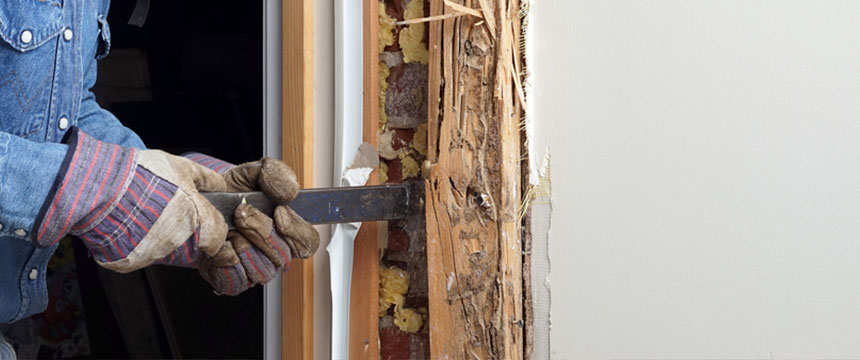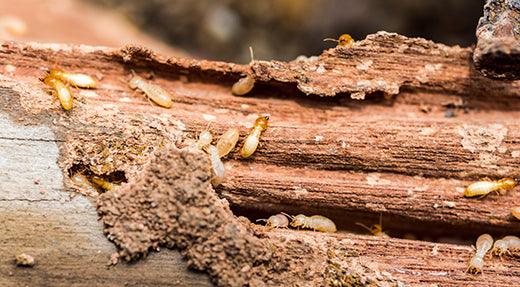The best wood treatment for termites is a borate-based solution such as Bora-Care. Termiticides like Thermidor also provide effective protection when applied correctly.
Protecting your home from termite damage is crucial, and selecting the right wood treatment can save you from costly repairs. Termites can silently destroy structures, so preventive measures are essential. The use of borate-based solutions, which penetrate the wood and eliminate termite colonies, has become a popular method. Termiticides, like fipronil-based products, create a long-lasting barrier that termites cannot detect, providing ongoing defense against infestations. Homeowners and professionals seek these treatments for their proven effectiveness and ease of application. Regular inspections combined with these treatments ensure that homes remain secure against the threat of termites.
Wood Treatment And Termite Prevention
Termites pose a significant risk to wooden structures and furniture. These destructive pests feed on wood, compromising the integrity and strength of the material. Effective wood treatment plays a key role in stopping termite attacks before they start. Protective measures ensure the longevity and durability of wooden items.
To guard against termites, professional-grade treatments can be applied directly to the wood. These treatments act as a barrier, deterring termites from eating and nesting. Preventative treatments are essential for areas prone to termite infestation. Choosing the right type of wood and treatment provides peace of mind and safeguards your home or building.
Types Of Wood Treatments For Termite Prevention
Termites are a common threat to wooden structures. Protecting wood from these pests is crucial.
Chemical Barrier Treatments involve creating a barrier in the soil. This barrier stops termites from reaching the wood.
Borate-based treatments soak into the wood, killing termites on contact. This method guards wood for a long time.
Heat Treatments raise the wood’s temperature to lethal levels for termites. This method uses no chemicals.
The Science Behind Wood Treatments And Their Effectiveness
The science of wood treatments helps select the right one against termites. Chemical treatments use substances to repel or kill these pests. Termites avoid areas treated with chemical barriers, stopping them from eating the wood.
Borate treatments penetrate deep into the wood, providing long-term protection. This method not only prevents future infestations but also stops current ones. Its effectiveness lasts as long as the wood remains dry.
Heat treatment stands out as a non-chemical approach with impressive results. Exposing infested wood to high temperatures can eliminate termites effectively. This treatment requires special equipment and professional handling.
Natural And Non-toxic Alternatives For Termite Control
Essential oils can keep termites away. Oils like orange and neem work well. They are safe to use around your home. Orange oil has d-limonene. D-limonene kills termites when they touch it. Neem oil stops termites from eating and laying eggs.
Beneficial nematodes are tiny worms. They live in soil. These worms hunt termites and other pests. You can buy them online or at garden stores. Put them in your soil to control termite populations naturally.
Termites don’t like crawling through certain materials. Sand barriers can stop termites. They can’t move through sand well. Use sand around your home’s foundation. Make a barrier that termites cannot cross. Physical barriers also work. Steel mesh and rocks can help protect your home from termites.
Pre-treated Wood Options And Their Advantages
Pressure-treated lumber is wood infused with preservatives under high pressure. This process shields the wood from termites and rot. It is a popular choice for outdoor structures, like decks and fences. The preservatives, deeply driven into the wood fibers, provide long-lasting protection.
Composite materials, blend wood fibers with plastics. These materials are innate termite-resistant and boast exceptional durability. Ideal for outdoor use, they require minimal maintenance and do not decay easily. Knowing the different treatment levels helps you choose the right wood. Whether for a ground contact project or an indoor fixture, there’s a suitable treatment level.
Best Practices For Applying Wood Treatment To Prevent Termites
Preparing wood surfaces is crucial to fight termites effectively. clear away any decayed wood and debris. Ensuring the wood is dry and clean enhances treatment adherence. Repair leaks to stop moisture buildup. It’s essential for long-term prevention.
Different treatment applications exist for both DIY enthusiasts and professionals. Brushing and spraying are common for home use. Professional services may involve fumigation or soil treatments. Both methods need careful execution to be most effective.
Using chemicals requires strict safety protocols. Wear protective clothing and avoid contaminating water sources. Choose eco-friendly treatments to minimize environmental impact. Always follow label instructions for safe and effective use.
Maintenance And Regular Inspection To Ensure Long-term Protection
Regular wood inspections play a key role in preventing termite problems. Professionals can spot issues early. They check for hidden damage and moisture areas that attract termites. It’s vital to stay vigilant year-round.
Various treatments need different reapplication times. Chemical barriers require a touch-up every five years. Natural oils could need annual reapplication. It’s best to consult a professional for the exact schedule.
- Mud tubes on exterior walls signal termites.
- Wood that sounds hollow when tapped might have termite damage.
- Tiny holes in drywall or wood can show termite entry.
- Termite droppings, looking like sawdust, are often found near wood.
Choosing The Right Wood Treatment For Your Needs
Various factors influence termite treatment selection. Wood type, infestation severity, and environmental conditions are critical. A balance between effectiveness and price is necessary. Tr. Expert guidance ensures tailored solutions. Professional pest controllers can assess and recommend treatments. Quality results often follow professional advice. Customer reviews and testimonials offer insight into expert reliability.
Why Choose Castle Construction for Wood Treatment for Termites?
When it comes to protecting your investment and ensuring the longevity of your wooden structures, choosing the right wood treatment for termite prevention is paramount. Castle Construction stands out as a trusted and reliable choice for safeguarding your property against the destructive impact of termites. The key reasons why Castle Construction’s wood treatment is the preferred solution.
- Expert Team of Termite Specialists
- Cutting-edge technology for Precise Treatment
- Proven Track Record of Success
- Customized Treatment Plans
- Environmentally Friendly Practices
- Timely and Efficient Service
- Local Reputation
- Warranty and Guarantee
- 24/7 service and Support
FAQs Of Wood Treatment For Termites
What Is The Most Effective Termite Treatment?
The most effective termite treatment is a professional application of termiticides combined with bait systems. Regular inspections contribute to long-term protection and control.
What Is The Most Powerful Termite Killer?
The most powerful termite killer is Fipronil, found in products like Thermidor. It’s highly effective when used according to label directions.
Which Is The Best Anti Termite Chemical For Wood?
The best anti-termite chemical for wood is Bora-Care, due to its deep penetrating formula and long-lasting protection against termites and other wood-destroying insects.
Will Treated Wood Stop Termites?
Treated wood is designed to be resistant to termites, as it’s infused with chemicals that deter these pests. Regular inspections are recommended to ensure full protection.
What Kills Termites In Wood Naturally?
Borates, such as borax powder, can naturally kill termites by disrupting their digestive system when ingested.
How Do I Treat Wood Infested With Termites?
Apply termiticides like fipronil or imidacloprid directly onto affected wood, or inject them into drilled holes for deep penetration and prevention.
Conclusion
Protecting your wooden structures from termites is crucial for their longevity. Borate-based treatments emerge as a top choice for their efficacy and safety. Regular inspections and prompt treatment application will ensure that termites don’t stand a chance. proactive wood care is your best defense against these persistent pests.


